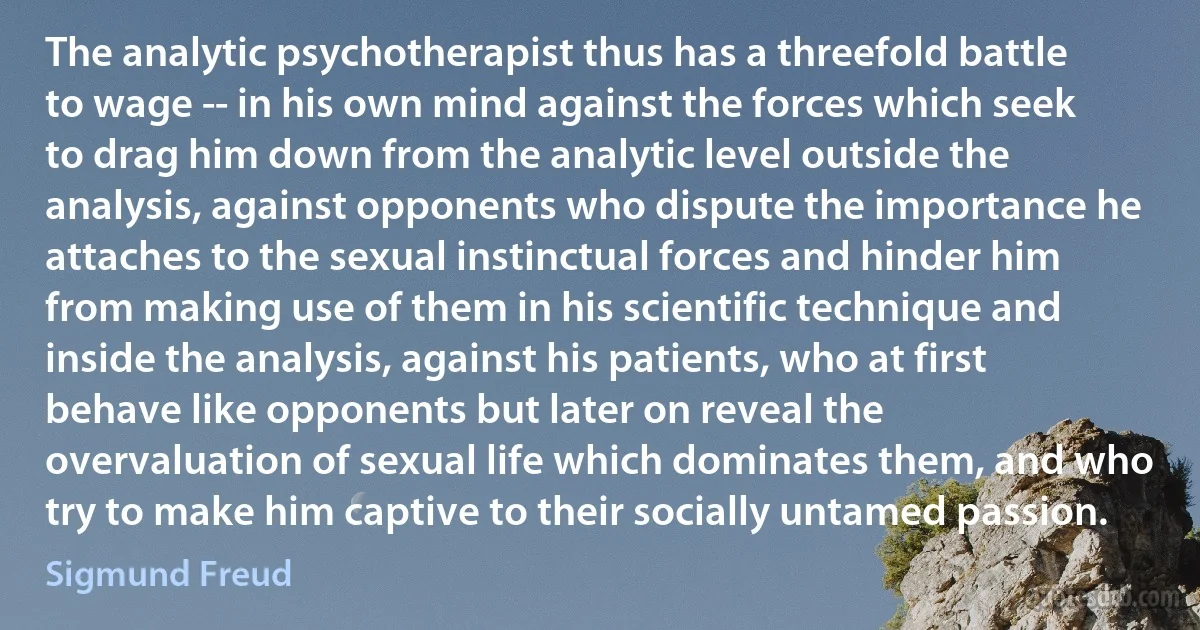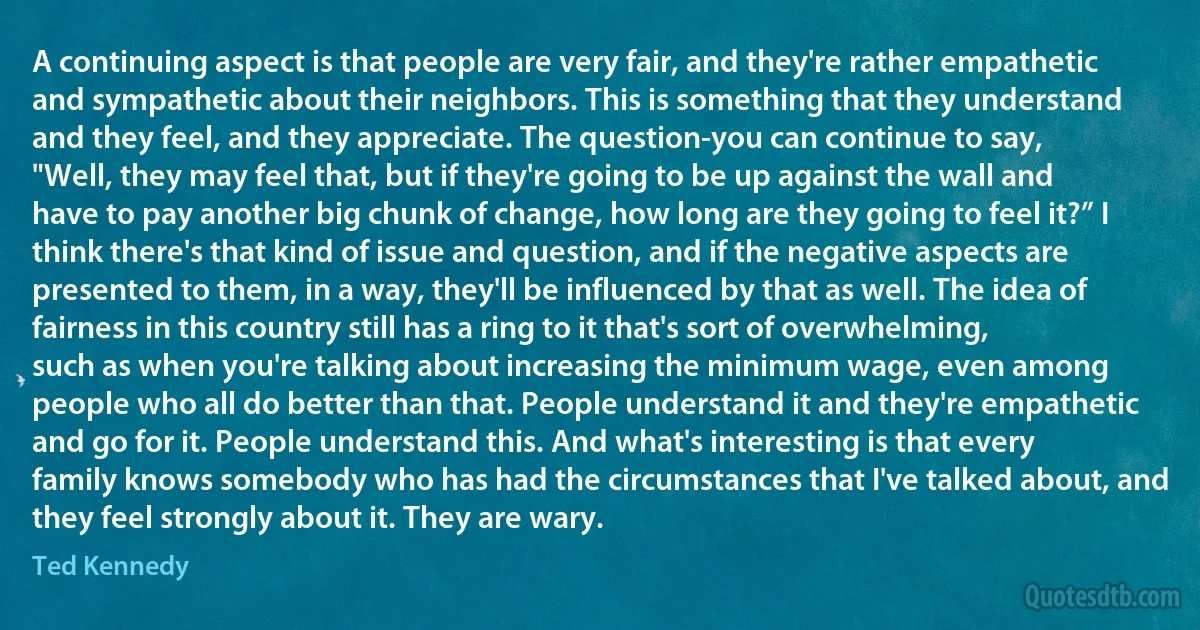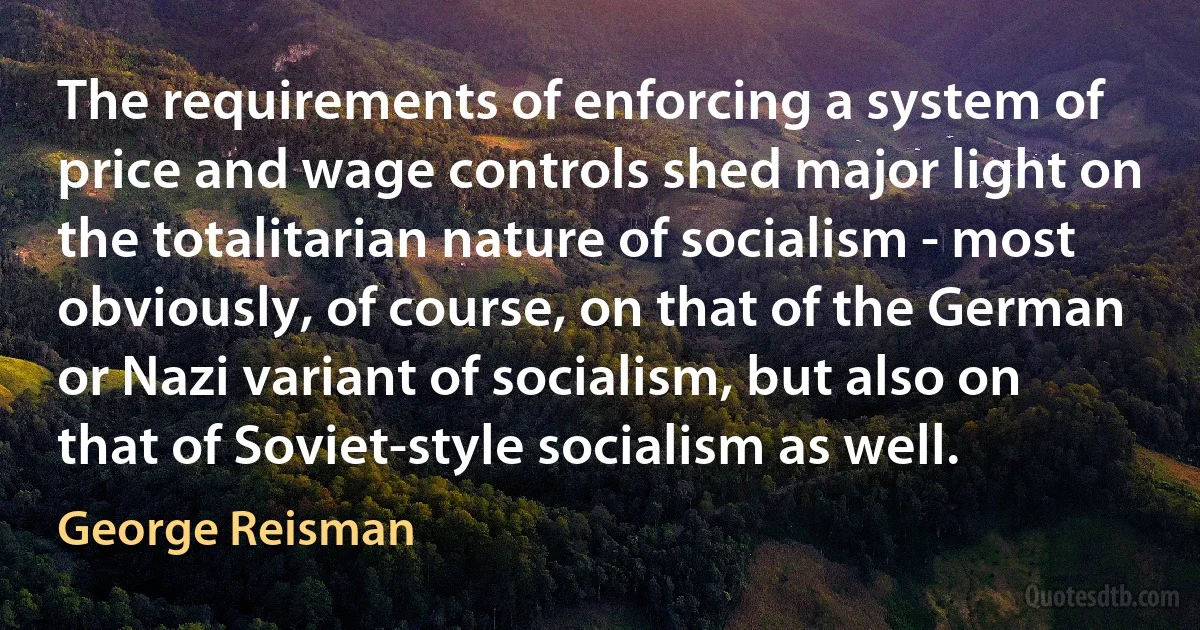Wage Quotes - page 15
Wide open and unguarded stand our gates,
Named of the four winds, North, South, East and West;
Portals that lead to an enchanted land...
Here, it is written, Toil shall have its wage
And Honor honor, and the humblest man
Stand level with the highest in the law.
Of such a land have men in dungeons dreamed
And with the vision brightening in their eyes
Gone smiling to the fagot and the sword.
O Liberty, white Goddess! is it well
To leave the gates unguarded? On thy breast
Fold Sorrow's children, soothe the hurts of Fate,
Lift the down-trodden, but with hand of steel
Stay those who to thy sacred portals come
To waste the gifts of Freedom.

Thomas Bailey Aldrich
Owing to the incapacity of the higher price-rate to appeal to the "acquisitive sense," it would appear altogether plausible to attempt to do so by utilizing the opposite strategy: by decreasing piece-rates, to force workers to produce more in order to maintain their accustomed earnings. Moreover, two simple observations seem to have held true in the past, as they do today: a lower wage and higher profit are directly related, and all that is paid out in higher wages must imply a corresponding reduction of profits.
Capitalism has been guided by this axiom repeatedly, and even from its beginning, and it has been an article of faith for centuries that lower wages are "productive."

Max Weber
Your old friend Congressman Hartley of the Taft Hartley team ... has written a book ... The title of this book is Our New National Labor Policy, the Taft-Hartley Act and the Next Steps. Get that: "The Next Steps" ... They're going even further! ... The Republicans favor a minimum wage - the smaller the minimum the better.

Harry S. Truman
Ironically, during four years of war, MacArthur may have owed the most to the very people he was certain were out to discredit and disparage him. While never among his fans, Franklin Roosevelt and George Marshall nonetheless consistently supported MacArthur within the framework of their global priorities, from the first efforts to resupply the Philippines to MacArthur's appointment as Allied supreme commander. Even then, where would MacArthur's Southwest Pacific Area have been had not Ernie King urged the Joint Chiefs to pour resources into the Pacific and wage a two-front war?

Douglas MacArthur
The United States, as the near unanimous vote to provide nearly $40 billion in aid to Ukraine illustrates, is trapped in the death spiral of unchecked militarism. No high speed trains. No universal health care. No viable Covid relief program. No respite from 8.3 percent inflation. No infrastructure programs to repair decaying roads and bridges, which require $41.8 billion to fix the 43,586 structurally deficient bridges, on average 68 years old. No forgiveness of $1.7 trillion in student debt. No addressing income inequality. No program to feed the 17 million children who go to bed each night hungry. No rational gun control or curbing of the epidemic of nihilistic violence and mass shootings. No help for the 100,000 Americans who die each year of drug overdoses. No minimum wage of $15 an hour to counter 44 years of wage stagnation. No respite from gas prices that are projected to hit $6 a gallon.

Chris Hedges
Senator Kennedy has for years, also been a dynamic leader on a wide range of other issues of central importance to the people of this Nation, including education, raising the minimum wage, defending the rights of workers and their families, strengthening civil rights laws, assisting individuals with disabilities, fighting for cleaner water and cleaner air, and protecting Social Security and Medicare for senior citizens.

Ted Kennedy
A paralysis of will seemed to have seized the Government. Whatever the subject, it was impossible to get a move on. I am not sure that this palsy did not account for the unanimity of the Cabinet on the question of rejecting overtures for Peace. These would have meant action. The pacifist element were easily persuaded to do nothing. The Government was getting into that nervous condition where they could neither wage war nor negotiate peace.

David Lloyd George
Instead of spending our money on preparedness to fight, we should pour out billions in a common effort to solve common problems around the earth... on the scale of present preparations for total war. ...This vast sum should be spent on food, clothing, shelter, medicine, seed, fertilizer, livestock, machinery, tools and other requirements of efficient production and distribution. ...Instead of spending billions on preparedness to wage war with pestilence, vast sums should be spent on health measures and the eradication of plague from the face of the earth.

Kirby Page
Following this preamble, these shall be the principles of social justice towards the realization of which we must strive:... I believe that every citizen willing to work and capable of working shall receive a just, living, annual wage which will enable him both to maintain and educate his family according to the standards of American decency.

Charles Coughlin
I believe that, in the present state of human society, it is advisable that the hourly wage contract should be abolished. In its stead legislation would be passed by which the laborer would receive an annual wage which would enable him to live in decently and according to the American standard.

Charles Coughlin
For some, the benign inflation outcome of 1996 might be considered surprising, as resource utilization rates--particularly of labor--were in the neighborhood of those that historically have been associated with building inflation pressures. To be sure, an acceleration in nominal labor compensation, especially its wage component, became evident over the past year. But the rate of pay increase still was markedly less than historical relationships with labor market conditions would have predicted. Atypical restraint on compensation increases has been evident for a few years now and appears to be mainly the consequence of greater worker insecurity. In 1991, at the bottom of the recession, a survey of workers at large firms by International Survey Research Corporation indicated that 25 percent feared being laid off. In 1996, despite the sharply lower unemployment rate and the tighter labor market, the same survey organization found that 46 percent were fearful of a job layoff.

Alan Greenspan
Would you leave me free to do what I think is best for the Labor Department, Franklin? I'd try to keep you informed, but I wouldn't always be able to... [D]irect unemployment relief, a program of public works, minimum wage and hour laws, unemployment and old age insurance, abolition of child labor... These things need doing no matter who is Secretary of Labor.

Frances Perkins
Two major problems will grow out of this discovery-one immediate in nature and the other to be later developed. The first is that those whose large financial interests are bound up in products which the new type of energy will inevitably supersede will fight to the last ditch to prevent these new sources of wealth from benefiting others.
Secondly, there will be the steadily growing problem of the release of man power from the gruelling labour and the long hours today required in order to provide a living wage and the necessities of life. One is the problem of capital and the other is the problem of labour; one is the problem of established control of the purely selfish interests which have for so long controlled the life of humanity and the other is the problem of leisure and its constructive use. One problem concerns civilization and its correct functioning in the new age and the other concerns culture and the employment of time along creative lines.

Alice Bailey
Another feature of the reversal of the Speenhamland method was less obvious to most nineteenth-century writers, namely, that the wage system had to be made universal in the interest also of the wage-earners themselves, even though this meant depriving them of their legal claim to subsistence. The "right to live" had proved a death trap to them.

Karl Polanyi
It was characteristic of the economic system of the nineteenth century that it was institutionally distinct from the rest of society. In a market economy, the production and distribution of material goods is carried on through a self-regulating system of markets, governed by laws of its own, the so-called laws of supply and demand, motivated in the last resort by two simple incentives, fear of hunger and hope of gain. This institutional arrangement is thus separate from the noneconomic institutions of society: its kinship organization and its political and religious systems. Neither the blood tie, nor legal compulsion, nor religious obligation, nor fealty, nor magic created the sociologically defined situations that insured the participation of individuals in the system. They were, rather, the creation of institutions like private property in the means of production and the wage system operating on purely economic incentives.

Karl Polanyi
The central problem of our economy for more than a generation has been that, although our productivity has grown more slowly than that of our competitors, we have seen annual wage increases of the same order as theirs. So our inflation has risen faster than in other countries and we have been able to maintain price competitiveness and full employment only by a series of devaluations which have further added to inflation and increased the pressure for excessive wage increases. In the era of North Sea oil it will be more difficult to devalue our currency to maintain price competitiveness. So unless we can keep wage increases close to the level of productivity increase we shall face rising unemployment and a further erosion of our industrial base.

Denis Healey



